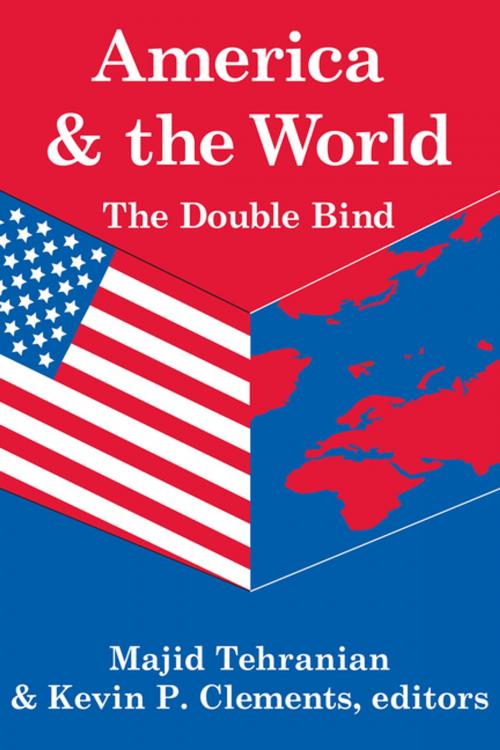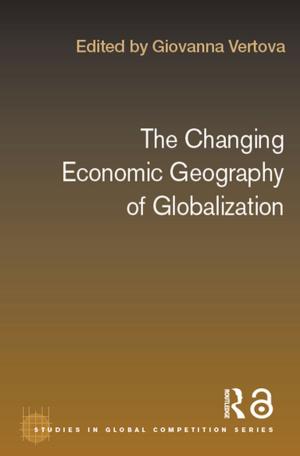America and the World: The Double Bind
Volume 9, Peace and Policy
Nonfiction, Social & Cultural Studies, Political Science, International, International Relations| Author: | ISBN: | 9781351532983 | |
| Publisher: | Taylor and Francis | Publication: | July 5, 2017 |
| Imprint: | Routledge | Language: | English |
| Author: | |
| ISBN: | 9781351532983 |
| Publisher: | Taylor and Francis |
| Publication: | July 5, 2017 |
| Imprint: | Routledge |
| Language: | English |
As the world's first democracy with a written constitution and Bill of Rights, the United States has stood for global aspirations toward democratic liberty, equality, and solidarity since its formation in 1776. However, as it developed into an empire by the late nineteenth century, the United States also has threatened the liberties of other peoples, including Native Americans, Hawaiians, Latin Americans, Asians, and Africans. The American role in world affairs has long been polarized around two conflicting images and strategies. In the name of counter-terrorism, the Bush administration pursued a largely unilateralist policy in the Middle East and elsewhere. Yet, in the name of protecting its national sovereignty, the United States also has rejected most of the recent multilateral treaties that strive to contain violence by fortifying the rule of international law. A unilateralist strategy also goes largely against the U.S. postwar multilateralism, which established the United Nations and its specialized agencies. This volume explores these contradictions. Contributors include: Kevin P. Clements, Tom Coffman, Audrey Kitagawa, Jeffrey F. Addicott, Steven Zunes, Vivien Stewart, Kathy Ferguson, Phyllis Turnbull, Bilveer Singh, Ibrahim G. Aoude, Richard Falk, Ann Wright, Beverley Kleever, Linda Groff, George Kent, Majid Tehranian, Mohammad Ali, Terrence Paupp, Gillian Young, Mihay Simaii, and David Krieger. The annual publication Peace & Policy, sponsored by the Toda Institute for Global Peace and Policy Research, is now in its ninth year. It is dedicated to providing a forum for the discussion of all issues concerning peace, policy, and the rights and responsibilities of global citizenship. This latest volume fulfills that commitment.
As the world's first democracy with a written constitution and Bill of Rights, the United States has stood for global aspirations toward democratic liberty, equality, and solidarity since its formation in 1776. However, as it developed into an empire by the late nineteenth century, the United States also has threatened the liberties of other peoples, including Native Americans, Hawaiians, Latin Americans, Asians, and Africans. The American role in world affairs has long been polarized around two conflicting images and strategies. In the name of counter-terrorism, the Bush administration pursued a largely unilateralist policy in the Middle East and elsewhere. Yet, in the name of protecting its national sovereignty, the United States also has rejected most of the recent multilateral treaties that strive to contain violence by fortifying the rule of international law. A unilateralist strategy also goes largely against the U.S. postwar multilateralism, which established the United Nations and its specialized agencies. This volume explores these contradictions. Contributors include: Kevin P. Clements, Tom Coffman, Audrey Kitagawa, Jeffrey F. Addicott, Steven Zunes, Vivien Stewart, Kathy Ferguson, Phyllis Turnbull, Bilveer Singh, Ibrahim G. Aoude, Richard Falk, Ann Wright, Beverley Kleever, Linda Groff, George Kent, Majid Tehranian, Mohammad Ali, Terrence Paupp, Gillian Young, Mihay Simaii, and David Krieger. The annual publication Peace & Policy, sponsored by the Toda Institute for Global Peace and Policy Research, is now in its ninth year. It is dedicated to providing a forum for the discussion of all issues concerning peace, policy, and the rights and responsibilities of global citizenship. This latest volume fulfills that commitment.















